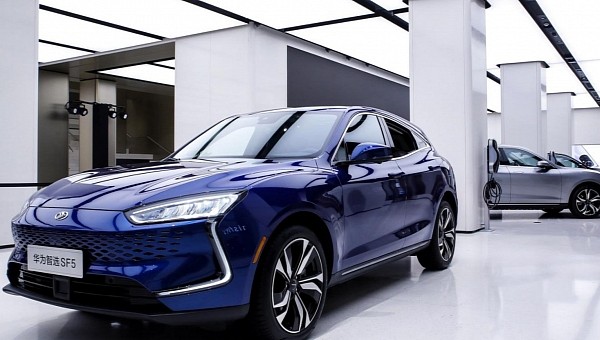Unlike rival Apple, which is investing in an electric vehicle built from scratch, Huawei has a different plan to expand in the automotive world. The company is partnering with traditional carmakers to provide the underlying technology that powers vehicles.
Recent rumors suggested that Huawei could be giving up on a critical partnership on this front. The collaboration with SERES, the company that’s believed to have the strongest ties with Huawei in the automotive industry, might come to an end, the speculation claims, especially as the tech behemoth was reconsidering its strategy.
In a recent statement, however, Huawei says this is not the case. The partnership with SERES will continue as planned, the firm claims, with the jointly developed M9 SUV projected to launch later this year.
Huawei has been under constant pressure to find new sources of revenue after the company was added to the U.S. Entity List in mid-May 2019. Due to alleged ties with the Chinese government, Huawei was banned from using technology developed by American companies, including software and hardware.
In the mobile industry, Huawei accelerated efforts aimed at its own mobile operating system and alternatives to Google services, as its devices were no longer allowed to use the licensed version of Android and the likes of Google Maps.
The resulting project, known as HarmonyOS, ended up becoming an all-in-one platform supposed to power a wide variety of devices, including the infotainment experience in cars.
Huawei’s partnership with SERES is living proof of how the company wants to expand in the automotive industry. The SERES SF5 Huawei Smart Selection, a fastback coupe that was sold in Huawei retail stores, was powered by the company’s DriveON electric drive system, allowing for a maximum range of 180 km (110 miles).
Additionally, the vehicle was fitted with Huawei HiCar, which expands the mobile applications available on a smartphone to the head unit in the car. Petal Maps, Huawei’s alternative to Google Maps, is in charge of navigation capabilities.
While Huawei’s automotive ambitions are limited to the domestic market, other Chinese tech companies have already announced global plans for expanding in the car industry.
Xiaomi wants to build over 300,000 cars per year, and its first unit is projected to launch in 2024 with an electric motor. Xiaomi’s strategy positions the firm as a competitor not only to traditional carmakers, but also to Apple.
In the meantime, Apple is believed to be making good progress on the car front as well. The Apple Car is projected to see daylight in 2025 at the earliest, with the company likely to share more information either this or next year. For now, Apple is making big efforts to keep the car project a total secret.
In a recent statement, however, Huawei says this is not the case. The partnership with SERES will continue as planned, the firm claims, with the jointly developed M9 SUV projected to launch later this year.
Huawei has been under constant pressure to find new sources of revenue after the company was added to the U.S. Entity List in mid-May 2019. Due to alleged ties with the Chinese government, Huawei was banned from using technology developed by American companies, including software and hardware.
In the mobile industry, Huawei accelerated efforts aimed at its own mobile operating system and alternatives to Google services, as its devices were no longer allowed to use the licensed version of Android and the likes of Google Maps.
The resulting project, known as HarmonyOS, ended up becoming an all-in-one platform supposed to power a wide variety of devices, including the infotainment experience in cars.
Huawei’s partnership with SERES is living proof of how the company wants to expand in the automotive industry. The SERES SF5 Huawei Smart Selection, a fastback coupe that was sold in Huawei retail stores, was powered by the company’s DriveON electric drive system, allowing for a maximum range of 180 km (110 miles).
Additionally, the vehicle was fitted with Huawei HiCar, which expands the mobile applications available on a smartphone to the head unit in the car. Petal Maps, Huawei’s alternative to Google Maps, is in charge of navigation capabilities.
While Huawei’s automotive ambitions are limited to the domestic market, other Chinese tech companies have already announced global plans for expanding in the car industry.
Xiaomi wants to build over 300,000 cars per year, and its first unit is projected to launch in 2024 with an electric motor. Xiaomi’s strategy positions the firm as a competitor not only to traditional carmakers, but also to Apple.
In the meantime, Apple is believed to be making good progress on the car front as well. The Apple Car is projected to see daylight in 2025 at the earliest, with the company likely to share more information either this or next year. For now, Apple is making big efforts to keep the car project a total secret.






